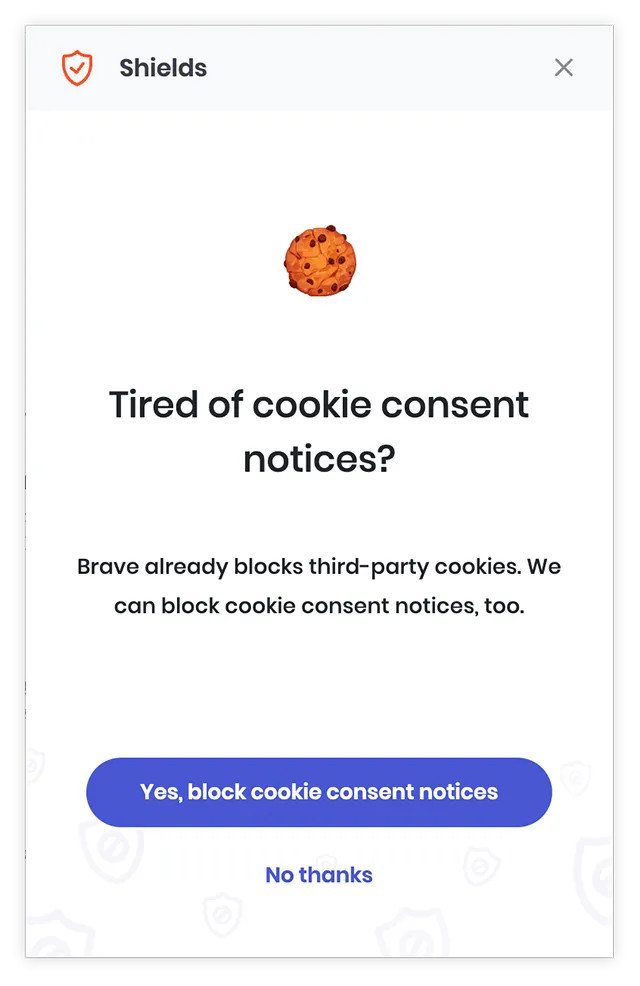
It has been several years now since websites started pestering users to accept their cookies, and some people have been driven to download browser extensions to avoid the constant nagging. Now, the Brave browser will automatically block cookie consent notifications beginning with version 1.45 which is due out in October.
According to Brave, users will be asked on start up whether they’d like their browser to block cookie banners. If enabled, the browser will use an Easylist Cookie List to nuke these cookie notifications in the browser so that they don’t bother you. Of course, you always have the option to opt out of using this feature. If you ever want to change your settings, you’ll be able to type brave://settings/shields/filters into the URL bar and enable or disable the Easylist-Cookie List option.

Explaining the approach that Brave uses to block cookies, the company says:
“One approach (which Brave uses) is to block cookie banners, and to hide and to modify pages to remove any additional annoyance such systems include (such as overlays, preventing scrolling, etc.). Other Web-privacy tools (such as uBlock Origin) can be configured to use this same approach. This approach provides the strongest privacy guarantees: it doesn’t require trusting that the cookie consent systems will respect your choice, and prevents your browser from needing to communicate with consent-tracking systems at all.”
Before ending the announcement, Brave took the opportunity to slam Google’s Manifest v3, which is says will remove “vital capabilities” from privacy-protecting browser extensions. Brave said that Google’s proposals will make it more difficult for users to block cookie banners.
This cookie notification blocker will be available on Android and desktop initially, but the company is planning to bring it to iOS too.